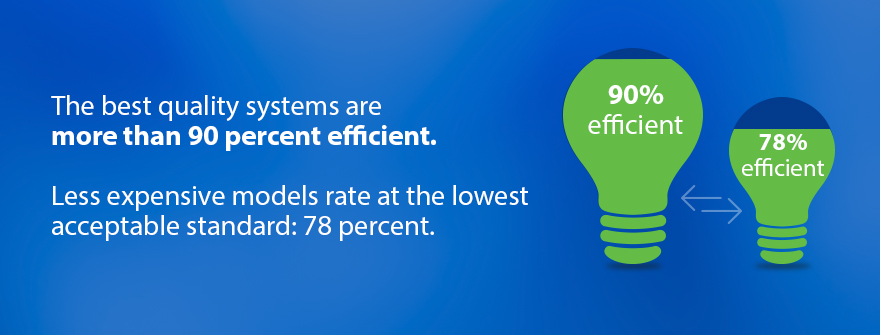Chapter 5: Natural Gas Compared to Oil
To effectively understand heating oil versus natural gas, you’ll first need some background on natural gas.
Use of Natural Gas
Natural gas has historically been a popular home heating fuel. However, during the second decade of the 21st century, its market has declined, as electricity is eroding natural gas’s share.
This is due, in part, to relocation of the American population. Many residents are moving to western and southern states where natural gas is not a common heating fuel. However, in the Northeast, use of both natural gas and electricity is growing.
Types of Natural Gas Heating Systems
There are three natural gas whole-house heating options:
- Forced air. The most common way to heat with gas is the forced air system. This consists of a furnace with a natural gas burner. Cool air enters a heat exchanger, where a burner warms the air. A blower or fan then sends the air through ductwork all over the house. The burning of natural gas creates water vapor and carbon dioxide. These escape outside. More efficient forced air furnaces use wall vents, while chimneys remove gases for less efficient models.
- Hydronic. In hydronic systems, natural gas boilers produce steam or hot water, which moves through pipes to radiators, baseboard units or radiant flooring. Byproducts are typically vented through the wall.
- Combination system. Combination systems incorporate a forced air furnace with hydronic baseboards. Water sits in a storage tank, and when it’s needed, water is pumped through a heated metal coil. A fan carries air across the coil, and the hot air moves through the house’s ducts.
Benefits and Drawbacks of Natural Gas
Next up in the natural gas versus oil match are the benefits of natural gas. Compared to oil, natural gas is less expensive. The average natural gas bill in winter 2014 to 2015 was $642, and natural gas tends to be one of the least expensive fuel options overall.

The efficiency of natural gas systems varies. The best quality systems are more than 90 percent efficient. Less expensive models rate at the lowest acceptable standard: 78 percent. Oil heaters, however, emit more heat per BTU than any type of gas furnace.
Efficiency also depends upon the location of ductwork. Ducts within interior walls or basements are most efficient. If the passages go through a poorly insulated attic or crawlspace, efficiency drops. Leaky ductwork reduces efficiency and increases utility bills.
Gas heating systems cannot be used everywhere in the U.S., either. A piped supply system must be in place to carry gas to buildings.
Safety is also a concern. Natural gas systems need proper maintenance, and a significant gas leak could cause an explosion and fire. In addition, without adequate venting, carbon monoxide — a poisonous gas — can spread through the house. People can become seriously ill or even die from carbon monoxide poisoning. Take proper safety measures and preventive precautions, such as installing a carbon monoxide alarm or detector.
When natural gas is compared to oil, there are certain advantages. However, just like with any system, those advantages need to be weighed against the disadvantages to decide which heating system will work best in your particular situation.
If you are interested in making a change from natural gas to oil, take a look at information for your state. We serve Pennsylvania, Connecticut, Massachusetts, Delaware, Maine, Maryland, New Hampshire, New Jersey, New York, Rhode Island, and Vermont.
 Download the full guide!
Download the full guide!